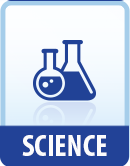|
This section contains 1,389 words (approx. 5 pages at 300 words per page) |

|
Escherichia coli, or E. coli is a bacterium in the family Enterobacteriaceae that is found in the intestines of warm-blooded animals, including humans. E. coli represent about 0.1% of the total bacteria of an adult's intestines (on a Western diet). As part of the normal flora of the human intestinal tract, E. coli aids in food digestion by producing vitamin K and B-complex vitamins from undigested materials in the large intestine and suppresses the growth of harmful bacterial species. However, E. coli has also been linked to diseases in about every part of the body. Pathogenic strains of E. coli have been shown to cause pneumonia, urinary tract infections, wound and blood infections, and meningitis.
Toxin-producing strains of E. coli can cause severe gastroenteritis (hemorrhagic colitis), which can include abdominal pain, vomiting, and bloody diarrhea. In most people, the vomiting and diarrhea stop within two to three...
|
This section contains 1,389 words (approx. 5 pages at 300 words per page) |

|


